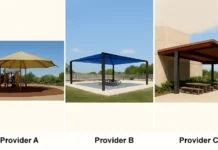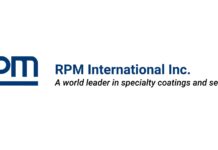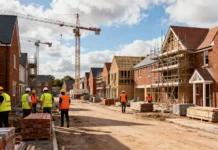The Saudi Arabia Council of Ministers has gone on to approve a new and far-reaching law—the law of real estate ownership and investment by non-Saudis. This legislation happens to replace the 2000 framework and also introduces a more progressive as well as structured regime, which helps foreign individuals as well as entities to own and also invest in real estate throughout designated zones across the kingdom. The reform syncs with the broad objectives of Saudi Vision 2030 and also reflects a deliberate policy transition that is aimed at attracting capital, broadening the real estate supply, and also elevating the development of urban standards but at the same time maintaining a very robust regulatory control so as to safeguard the national interests.
Access, which is structured within the defined zones
The new law enables the foreign investors, both companies as well as individuals to acquire real estate in certain areas to be designated by the general real estate authority. These zones are initially going to focus on high-demand commercial as well as residential markets, especially in the cities of Jeddah and Riyadh. Foreign ownership in these designated zones still remains subject to prior regulatory approval, keeping in mind numerous conditions that depend on the type as well as the purpose of the project or the proposed acquisition.
When it comes to commercial real estate investments, foreign entities will as well acquire complete ownership provided that
– The investment happens to be development-focused.
– The project goes on to meet a minimum capital threshold, which is at present SAR 30 million.
– The construction of the project gets completed, and the project is functional within five years from the date the acquisition takes place.
It is well to be noted that all these above provisions look forward to ensuring that foreign investments actively contribute towards urban growth as well as market liquidity rather than serving only speculative purposes.
Controlled eligibility in residential ownership
Foreign individuals who happen to hold valid residency permits – iqama may acquire residential property for personal usage. However, these kinds of acquisitions are subject to the approval of the Ministry of Interior, and residential ownership remains very tightly regulated, specifically when it comes to premium or high-value segments, in order to prevent any speculative inflation, maintain the affordability of housing, and also preserve access for the Saudi citizens.
Makkah and Medina – cultural as well as religious safeguards
The ownership of real estate when it comes to Makkah and Medina still remains highly restricted. Foreigners are mostly prohibited from owning property in both the holy cities, with foreign leadership exceptions being narrowly permitted to foreigners who are Muslims, and that too, in very limited cases like inheritance or religious endowments that are recognised – waqf. These provisions go on to highlight the kingdom’s ongoing commitment towards preserving the religious sanctity as well as demographic character throughout all of its most sacred sites.
Execution, which is faced along with regulatory oversight
The New Real Estate Foreign Ownership Law will enter into force from January 2026 and will follow a transitional period of 180 days during which execution of regulations is going to be issued by the relevant authorities, which include the general real estate authority, the ministry of interior, and the ministry of investment. This phased approach allows for calibration in terms of regulatory frameworks, monitoring tools, and also licensing systems.
Apparently, the authorities are going to continuously evaluate the impact of the law on
– Investment volumes, as well as economic diversification
– Real estate prices along with supply dynamics
– Housing access as well as affordability for the Saudi citizens
It is well to be noted that the New Real Estate Foreign Ownership Law will explicitly offer periodic reviews as well as alterations, thereby reflecting a responsive governance model, which balances the openness of the market along with the social as well as economic safeguards.
Legal as well as policy considerations
The new legal regime goes on to introduce a number of functional as well as strategic questions, which will shape the execution along with investor participation.
– What enforcement mechanisms are going to ensure compliance when one talks of project timelines and the investment threshold?
– How will the designated investment zones be determined, and what is going to be the criteria that will guide their expansion or even limitation?
– To what extent is the licensing as well as the approval process going to be centralized or delegated throughout the various authorities?
– How will the foreign ownership be tracked in order to prevent any sort of misuse or market distortion?
It is worth noting that these issues are going to be especially relevant for all the stakeholders within the real estate sector, which includes fund managers, infrastructure operators, financial institutions, foreign sovereign or institutional investors, and, of course, the developers who are looking to navigate the evolving real estate spectrum of the kingdom.
Conclusion
The enactment of the new real estate foreign ownership law in Saudi Arabia goes on to represent a major shift in the real estate development and investment landscape of the kingdom. It shifts the country from a historically restrictive regime to a calibrated as well as liberalized framework, which is designed to welcome foreign capital but, at the same time, preserve the national values, market balance, and cultural sensitivity.
As the execution regulations get finalized ahead of the January 2026 effective date of the law, investors, developers, and other market participants will be required to navigate a very intricate regulatory environment. Apparently, sophisticated legal counsel is going to be essential in order to evaluate eligibility, manage cross-border risk, and also structure any kind of complaint transactions.
At the end of the day, the success of the law is completely going to hinge on the clarity of its implementation, the strength when it comes to the institutional oversight, and the alignment of policy objectives along with social as well as economic imperatives. If all these elements are upheld, this reform could go on to become a cornerstone in the broader strategy of Saudi Arabia to position itself as a worldwide hub when it comes to investment as well as sustainable urban development.

































